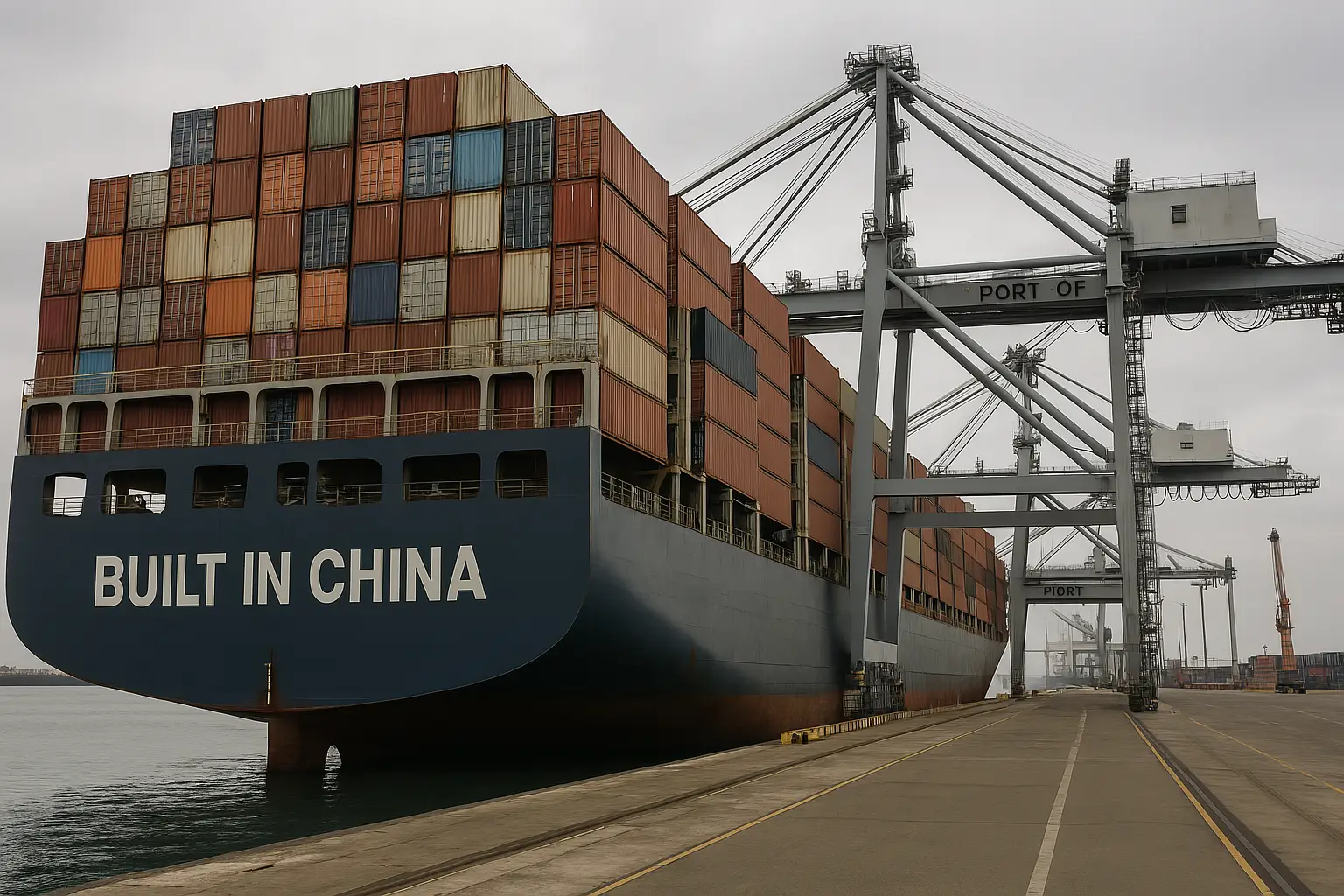Can the U.S. challenge China’s shipbuilding dominance without shooting itself in the economic foot?
In a recent hearing, representatives from the shipping industry urged U.S. policymakers to reconsider the proposed port fees on Chinese-built vessels, advocating for a more nuanced strategy that balances national interests with economic realities.
Background on the Proposed Fees
The U.S. Trade Representative (USTR) has proposed imposing fees of up to $1.5 million on Chinese-built vessels entering U.S. ports. This initiative aims to counter China’s growing dominance in global shipbuilding and maritime logistics, which has expanded from a 5% share in 1999 to over 50% in 2023, largely attributed to substantial state subsidies.
Industry Concerns
Industry stakeholders have expressed significant apprehension regarding the potential economic impact of these fees. Executives from various maritime sectors testified that such measures could inadvertently harm U.S. businesses by increasing operational costs, disrupting supply chains, and inflating consumer prices. For instance, the proposed fees could add approximately $6,350 to the cost of a container, more than doubling current spot rates for routes like Rotterdam-New York.
Impact on U.S. Exporters
Representatives from the fossil fuel and agriculture industries highlighted the detrimental effects on exports, emphasizing that increased shipping costs could reduce competitiveness in global markets. The American Farm Bureau Federation estimated that these fees could add significant annual shipping costs, further squeezing profit margins for U.S. farmers already facing challenges from existing trade conflicts.
Call for a Balanced Strategy
While acknowledging the need to address China’s influence in shipbuilding, industry leaders advocate for a strategy that does not inadvertently penalize U.S. businesses. They recommend policies that encourage domestic shipbuilding and strengthen the U.S. maritime industry without imposing broad fees that could have unintended economic consequences.
“It’s like trying to rebuild your house by throwing rocks at the neighbour’s. We support reshoring shipbuilding — but not at the cost of wrecking America’s export economy in the process.”
— Logistics Policy Advisor, speaking at the hearing
The hearing underscored the complexity of implementing trade measures that effectively address geopolitical concerns while safeguarding domestic economic interests. Policymakers are urged to collaborate with industry stakeholders to develop a comprehensive approach that promotes fair competition without disrupting vital sectors of the U.S. economy.









